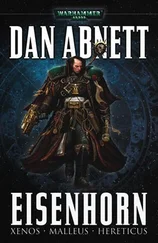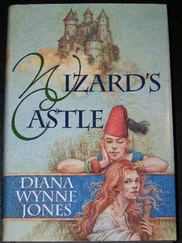"Yes," Moriarty said. "I've been thinking the same thing."
"That's it, then?"
"The probabilities would so indicate."
"What is it, Holmes?" Watson asked, staring at the barge.
"Captain Coster," Holmes said, "please look carefully at the barge. Does it seem to you that it is riding too high on the water? Compare it with those barges at the pier to our left, which are also fully loaded with coal."
"Why, yes," Coster said. "That had been bothering me, but as I couldn't think of anything to account for it, I decided I must be mistaken."
"Pull alongside that barge, Captain," Moriarty directed. "Carefully, very carefully, if you don't mind."
Slowly the Water Witch edged alongside the coal barge. Moriarty took a small self-loading pistol from his pocket and worked the slide to chamber a bullet. Dr. Watson pulled his old service revolver from his belt, and Sherlock Holmes produced a smaller, silver-plated revolver from an inside pocket of his traveling cape.
Captain Coster did his best to look calm and unconcerned at his passengers' odd behavior. "This person you're looking for," he said. "I take it he's not a friend of yours."
"Hush!" Holmes said, putting his finger to his lips. "Keep your ship alongside. We'll be back."
The three of them, Holmes in the lead, leaped across the two feet of water separating the two craft and scrambled up the rough wooden side of the barge. The craft was nothing more than a huge rectangle full of coal from front to rear. At the very stern was a small wooden superstructure resembling a shed with windows cut in it. Black curtains shielded the windows from the inside, and there was no sign of life.
Slowly they worked their way to the stern. "It seems unlikely that we haven't been seen — or perhaps heard," Moriarty whispered. "We had best be ready for a warm welcome."
Holmes smiled grimly. "It occurs to me," he said, "that if we're mistaken, some poor bargee is about to experience the shock of his life."
Holmes and Watson lay prone on a bed of coal, their weapons pointed at the door, while Moriarty snapped it open with a well-placed baritsu kick and ducked aside. It swung wildly back and forth with a clatter that echoed off the water. Still nothing moved.
After a cautious moment, Moriarty dropped to the deck and carefully peered around the doorway. Then he stood up and dusted himself off, looking disgusted. "Come here, gentlemen," he said, "Look at this."
Inside the cabin were three men. Two of them were sprawled opposite each other across a small table and the third was crumpled on the floor halfway to the door. The two men at the table each had a hole in his chest, a great, ugly gaping hole of the sort caused by a large-caliber handgun fired from close range. The man on the floor had three such holes in his back. He lay in a clotted pool of his own blood, his face turned up, eyes opened, wearing a surprised expression. On the table was a small mound of anarchist literature, now covered with dried blood.
Stepping gingerly to avoid the blood, Holmes bent down to examine the body on the floor. "Dead for some time, I should say," he said. "What do you think, Watson?"
Watson stooped over and pressed his fingernail into the flesh of the wrist and then opened the dead eye and peered at it. "Four or five hours, as a quick estimate," he said. "Nasty way to go — not that any death is pleasant. Still, the massive trauma of a half-inch piece of lead pushing its way through the human gut must rank as one of the less desirable ends."
"Well," Moriarty said. "Trepoff has his dead anarchists. Now what has he done with the submersible?" He knelt down and began tapping on the deck, to be rewarded almost immediately with a dull thumping. "Down here," he said. "There must be a trap door."
Holmes joined him and, together, they pried and tapped and examined and pushed and prodded at the boards of the cabin floor. It took them five minutes to find the catch, hidden between two floorboards. Moriarty pushed at it, and it dropped a pair of hinged doors to reveal a three-foot-square hole. Holmes went over to the table for a candle which stood between the two dead anarchists and lighted it.
"He's gone, of course," Moriarty said. "But we'd best check," Holmes said.
"Of course," Moriarty said. He swung himself over the side of the trap and climbed down the ladder affixed to the edge. When his head was level with the floor, Holmes handed him the candle, and then he disappeared below.
A few moments later he was back. "Come down here," he called to Holmes. "This is impressive. You should see it. Bring another candle or, by preference, one of the oil lamps."
Holmes and Watson removed two oil lamps from the gimbals that tied them to the cabin walls, lighted them, and clambered down the ladder to join Moriarty. The whole interior of the barge proved to be a vast, empty chamber. A board and beam load-bearing ceiling roofed it over, and provided support for the one or two feet of coal above, which disguised and concealed the chamber. Along the two sides and the aft section where they stood ran a wooden platform. Water came up to about three feet below the platform, filling the whole center of the chamber.
"Here," Moriarty said, "is where the Garrett-Harris was moored."
"There must be a hole in the bottom of the barge," Holmes said, "just large enough for the submersible to come in and out."
"At the moment," Moriarty added, "it is out. We can investigate this later, but right now we'd best get back to the Water Witch and see if we can determine where that blasted steel cigar is lying in wait."
-
They had no sooner reached the upper cabin than they heard Captain Coster hallooing for them. Moriarty raced out on deck and over to the side. "What?" he yelled.
Captain Coster pointed up. Moriarty turned. There, in the air above them, was the fading light of a blue signal flare. Suddenly a second flare arced up to join the first. This new one burst forth with a brilliant white ball of light.
"Blue, then white," Moriarty said. "Southeast. Very clever of Barnett." He scrambled over the side of the barge and onto the steam-launch, with Holmes and Watson only a few steps behind. "Southeast," he told Captain Coster. "Head southeast. Holmes, get forward and see if you can spot the thing."
"What can we do if we find it, now it's submerged?" Watson asked.
"Ram it!" Moriarty snapped. "It won't be more than four or five feet down. We should be able to split it open like an eggshell."
"Here, now!" Captain Coster said. "What is it you're talking about ramming with the Water Witch? Her hull is none too strong, you know. Besides, I can get into an awful mess of trouble if I go about ramming other boats."
"Don't worry about that, Captain," Moriarty said with firm authority. "Just make your course, and quickly! We're on the Queen's business. If any harm comes to your boat, you shall be completely reimbursed for damages."
"The Queen's—"
"Get a move on, Captain," Moriarty said. "There's a submersible out there somewhere stalking the Victoria and Albert, and we have to stop it!"
"Yes, sir," Captain Coster said, snapping him a firm salute. "Aye, aye, sir." He grabbed the wheel and headed the Water Witch around.
The sea was cluttered with small pleasure-boats — a thousand Sunday skippers all out to cheer their favorites as the great race drew to a close. The first of the big yachts were now coming into sight in the distance, tacking into the bay and lining up on the Victoria and Albert and the finish line.
The Water Witch cut a line due southeast, passing to the left of the Royal Yacht and heading into the Solent. "We'll pass well to the lee of the yachts," Captain Coster said, "so that's all right. But where is this submersible?"
Читать дальше












